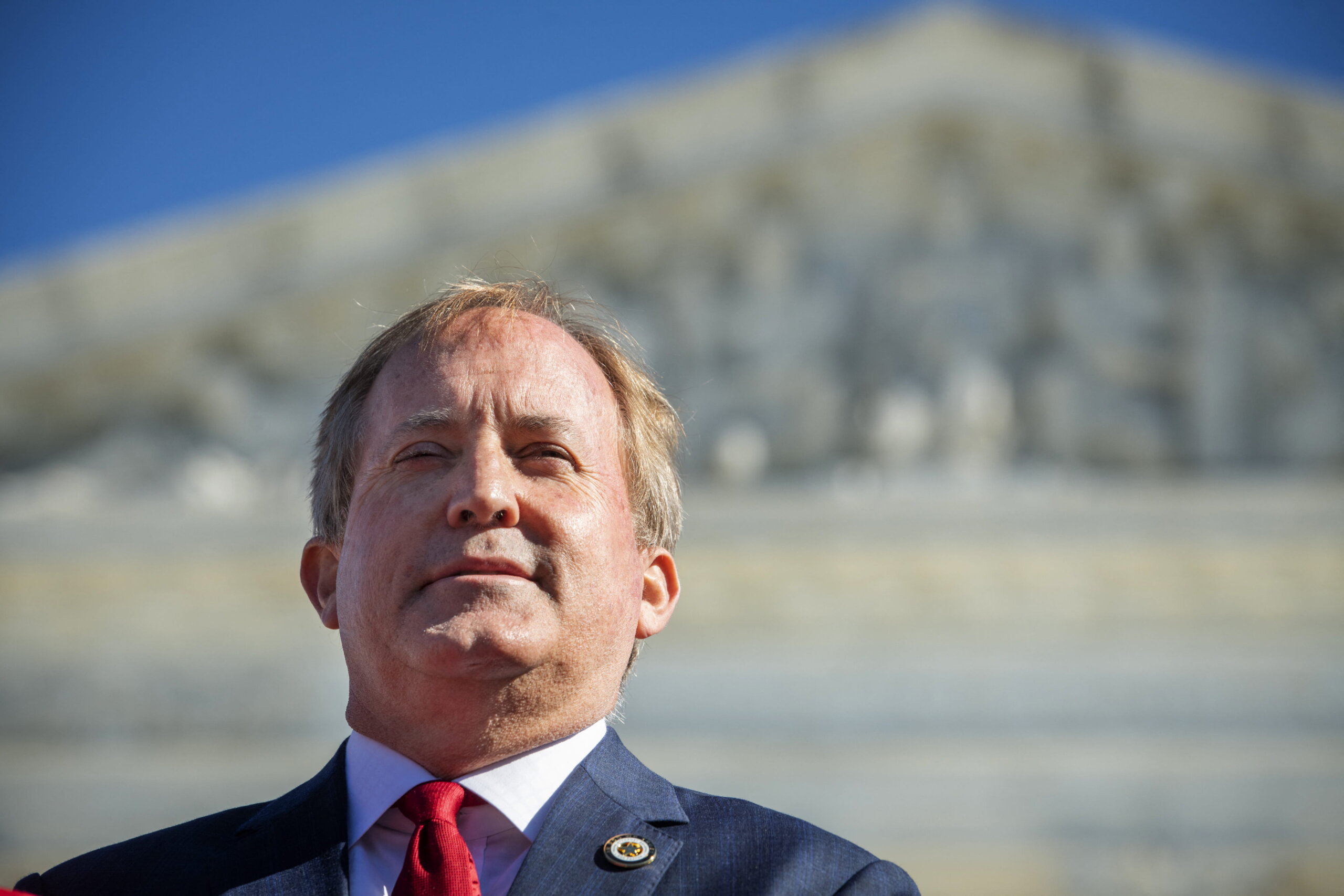Texas attorney general Ken Paxton has announced that he’s “willing and able” to ban gay sex following the Supreme Court’s ruling overturning Roe v. Wade.
During a June 24 interview with the NewsNation cable channel, Paxton was asked if he would be willing to defend a Texas law banning sodomy if a case challenging states’ ability to regulate same-sex intimacy were to land before the Supreme Court. The Supreme Court’s decision to strike down Roe v. Wade, a landmark 1973 ruling mandating a constitutional right to abortion access, has sparked concerns that conservatives will exploit the decision to chip away at LGBTQ2S+ equality.
In his comments, Paxton certainly appeared eager to target LGBTQ2S+ rights. “There’s all kinds of issues here, but certainly, the Supreme Court has stepped into issues that I don’t think there was any constitutional issues dealing with,” he responded. “They were legislative issues.”
The Texas AG went on to say that abortion “was one of those issues, and there may be more.”
Texas is one of at least 11 U.S. states that still has its sodomy ban on the books even despite Lawrence v. Texas, the Supreme Court’s 2003 ruling to decriminalize gay sex in all 50 states. With states choosing to enforce heartbeat “trigger” laws to immediately outlaw abortion following Roe’s repeal, states like Alabama, Idaho, Mississippi, Oklahoma, South Carolina and Texas could hypothetically begin prosecuting acts of queer intimacy if Lawrence were to be overturned.
Paxton, for one, signalled that he would have no issue with recriminalizing consensual sex acts between LGBTQ2S+ adults in his state. “My job is to defend state law and I’ll continue to do that,” he said. “That is my job under the Constitution and I’m certainly willing and able to do that.”
Although the Supreme Court has not revisited its ruling in Lawrence or announced that it intends to do so, at least one justice has expressed a desire to roll back key LGBTQ2S+ rulings now that Roe is history. Justice Clarence Thomas, the court’s most conservative appointee, argued in a concurring opinion that the Supreme Court should now rethink its decisions in Lawrence and 2015’s Obergefell v. Hodges, which guaranteed same-sex couples in the U.S. a federal right to marry.
Even if Paxton doesn’t get the chance to make gay sex illegal again in Texas, the AG is likely to continue to target LGBTQ2S+ populations in the state. Following the Supreme Court’s Obergefell ruling, he referred to the decision as “lawless” and claimed that clerks were not obligated to issue same-sex couples marriage licences. Paxton also pressured the Texas Supreme Court to hear a lawsuit regarding Houston’s extension of spousal benefits to city employees in same-sex relationships, which ultimately led to Texas’ top court deciding that the issue had been left unsettled by Obergefell.
Paxton has also played an instrumental role in Texas’ crusade against trans youth and their families. When Gov. Greg Abbott issued an executive order calling on state child welfare agencies to investigate parents who allow their children to socially and medically transition, that directive was based on a legal opinion from Paxton declaring gender-affirming medical care to be “child abuse.”
Texas isn’t the only state to consider using Roe’s repeal to jeopardize protections for LGBTQ2S+ people. Last month, Alabama attorney general Steve Marshall urged the 11th U.S. Circuit Court of Appeals to overturn a lower court injunction partially blocking a law that criminalizes gender-affirming treatments for trans minors under the age of 19. The first-of-its-kind law threatens doctors and other medical providers with up to 10 years in prison and a $15,000 fine if they offer medications like puberty blockers and hormones to trans youth or provide gender-affirming surgery.
Medical providers who treat trans youth in the state of Alabama have stated that surgical care is not offered to minor children.


 Why you can trust Xtra
Why you can trust Xtra


